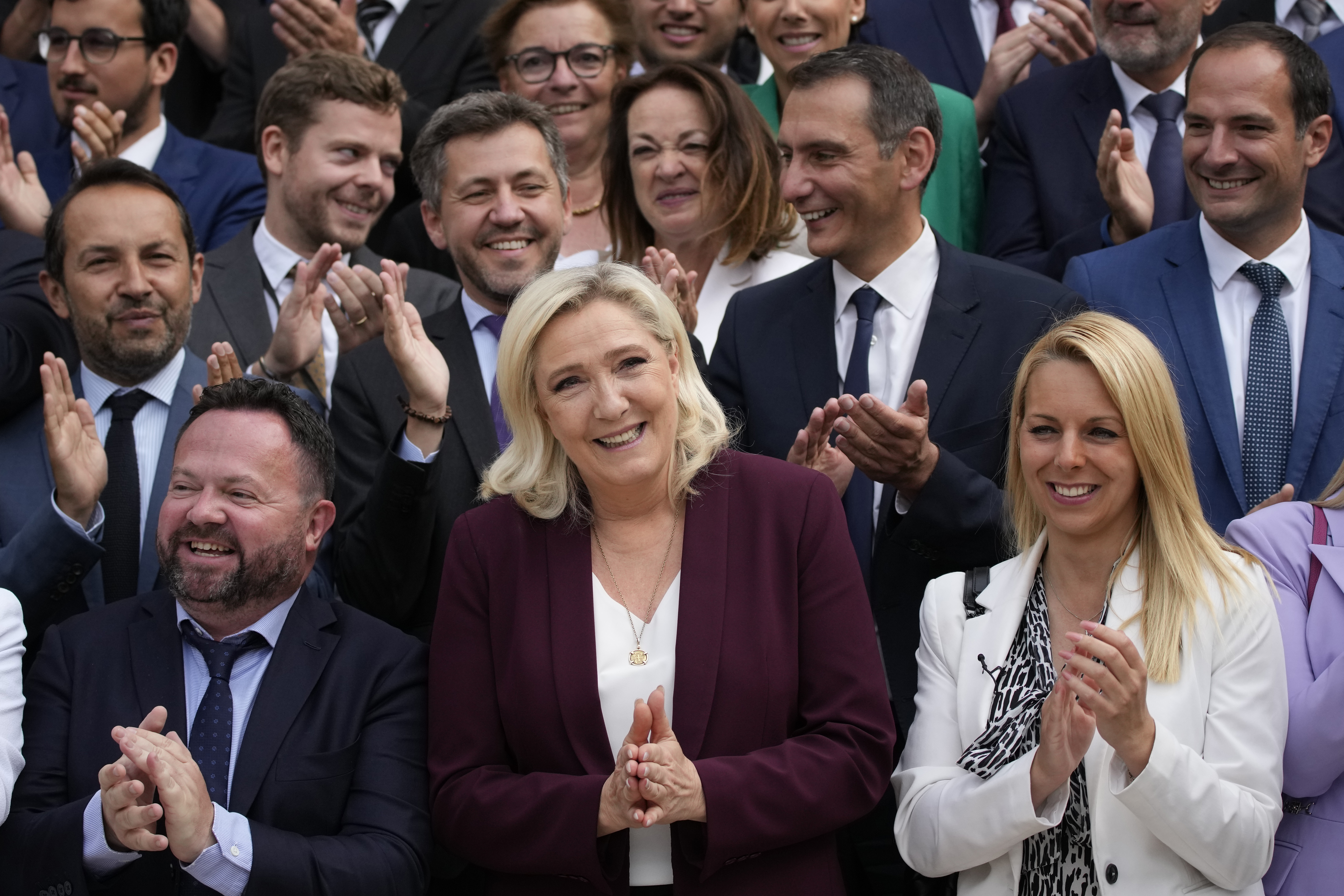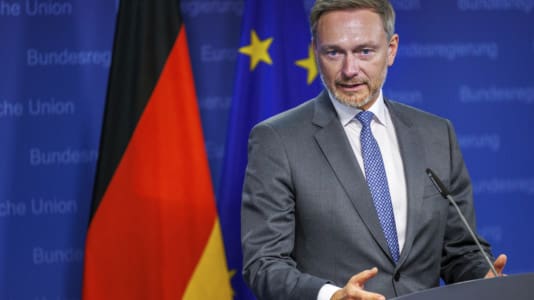No one expected such a good result for Le Pen’s National Rally in the second round of the French legislative elections. With 89 deputies in the National Assembly, Le Pen’s RN will be able to form the second-biggest parliamentary group behind Macron’s ruling Renaissance (formerly LREM), which secured just 161 seats out of 577 in total on June 19, down from 308 five years ago. Together with its allies in the “Ensemble” (Together) electoral coalition, the presidential camp now has 245 seats, which is far from the 289-seat majority threshold, and much less than predicted by opinion polls. It is also much less than the 350 seats they obtained in 2017.
Since Sunday night, the French media have been trumpeting RN’s victory, the end of the “Republican Front” — which is the French version of the “cordon sanitaire” policy towards conservative, anti-mass immigration right-wing parties — and the crushing defeat of Emmanuel Macron and his supporters. One sign of the change was Justice Minister Nicolas Dupont-Moretti, who used to be in favor of delegalizing Le Pen’s party, saying that it could be possible to work together with the National Rally to enact laws in the fields of security and justice. Other government members, however, have said that it is possible to work with all parties in parliament except for one: the National Rally.
[pp id=34639]
One can only dream of how many deputies of the so-called “patriotic camp” there could have been had Marine Le Pen not rejected Éric Zemmour’s proposal to form a right-wing coalition just as the left did. By doing so, the left’s New Ecologic and Social People’s Union (NUPES) coalition has secured 137 seats in the new National Assembly instead of 64 for its member parties in the previous one with roughly the same proportion of the popular vote as five years ago. On the one hand, Zemmour’s Reconquest only received 4.3 percent of the vote at the national level in the first round of these elections, but then fewer than half of the voters took part in these elections where Macron’s radical center and the radical left seemed to be the only real contenders in the face of a divided right.
Short of an absolute majority, the French president was calling on Wednesday for a national unity government, but this was clearly rejected by the left and the right alike, including by the center-right, which appears as Macron’s most natural ally but has been struggling to restore its image of a plausible opponent to the president’s leftist-liberal policies. The first move by the Republicans (LR) was to name a conservative and fierce critic of the government as the leader of their parliamentary group. With 64 deputies, the main party of the center-right has the smallest representation ever in the 5th Republic’s National Assembly, but it holds a key position. Being ideologically closest to Macron’s camp, they are the one party Macron will naturally turn to when seeking support for legislative bills. And let’s not forget that LR still has a majority in the Senate.
[pp id=34482]
Marine Le Pen’s “victory” is a victory for herself and her National Rally, but the “populist” right, much like the “populist” left, is unlikely to have much of an impact on the way France is governed and on the laws that are passed.
Still, this is a true political earthquake that occurred in France on June 19. Five years ago, the National Front — which is the National Rally’s former name — received some 13 percent of the vote and ended up with only eight deputies in the National Assembly after having had some 120 candidates making it to the second round. This time, it had 208 candidates in the second round and 89 of them got more than 50 percent of the vote in their constituencies during the run-off election on June 19. In the French lower house of parliament, you need to have at least 15 deputies to form a group and get access to important posts, including in parliamentary committees, as well as having a say in the parliamentary agenda.
The only time in the past when the then National Front had a parliamentary group in the National Assembly was in 1986 when it won 35 seats thanks to a change in the electoral law to allow for part of the deputies to be elected by a proportional vote, which was a maneuver by Socialist President François Mitterrand to lessen the center right’s expected victory in the legislative elections.
Today, as the left-wing NUPES is a coalition of parties with Jean-Luc Mélenchon’s Islamo-leftist LFI, the Socialist Party, the Communist Party, and the Greens each planning to have their own parliamentary group, and as LFI has 72 deputies (up from 17), as mentioned before, the 89-member RN parliamentary group will be the second most numerous after Macron’s Renaissance. For a party known for its passivity and the frequent absences of its deputies during votes that matter, this will be an opportunity to show it is now getting serious (or not).
[pp id=28005]
This should also help to solve the RN’s long-standing financial problems in the face of a French banking system that has always refused it access to credit on political grounds, as the state subsidy for parties, which is calculated based on the number of votes obtained and the number of deputies in the National Assembly, will now amount to some €10 million per year during the next five years for the National Rally.
According to a 15-year-old tradition, as the biggest opposition party, Le Pen’s RN should be allowed to chair the National Assembly’s Finance Committee which is in charge of supervising how the government spends taxpayers’ money, and this could give it a lot of leverage. LFI’s Mélenchon, who did not himself stand for this election and is no longer an MP, called for his NUPES allies to create one common group for the left in order for it to have the biggest opposition group, but this was rejected right away. However, it is still possible the RN will be barred from chairing the Finance Committee by other parties.
President Macron spoke to the nation on Wednesday night, and his speech lasted only eight minutes, which is very unlike him, as he had accustomed the French to Castro-style wordy speeches. Acknowledging his defeat, he called on all opposition parties to behave responsibly, vowing to negotiate the different reforms he still intends to enforce from the position of a minority government with those he arrogantly ignored until now.
After the first round of the elections on June 12, France seemed to be doomed to a very leftist future, but things have come out better than expected thanks to a worse-than-expected result not only for Emmanuel Macron’s leftist-liberal center but also for Jean-Luc Mélenchon’s wokeist, Islamo-leftist left.
The worst fears for conservatives and patriots did not transpire. Instead, the results on June 19 mean Macron’s second mandate may have to be a little more Orbán-like and less Trudeau-like thanks to the pressure from the center-right Republicans, which are themselves under harsh competitive pressure from Le Pen’s National Rally. A good test of whether Macron is forced to abandon his left-wing policies would be a change of prime minister, as his smaller allies in the Ensemble coalition are already asking for, and a change of the very wokeist education minister Macron had picked in a mistaken attempt to lure Mélenchon’s voters.





